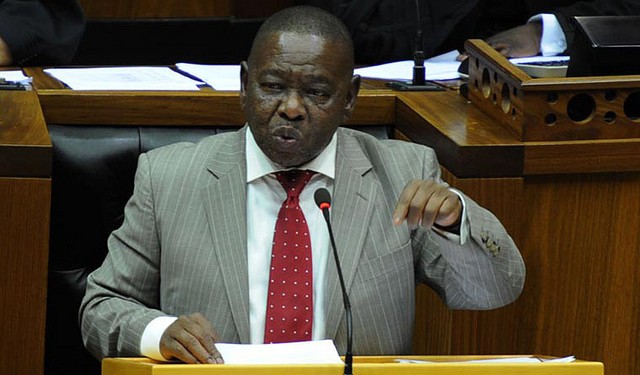Changes to visa regulations introduced in May are harming South Africa’s English as a Foreign Language (EFL) market and could cause some schools to lose up to 60% of their business, according to Education South Africa (EduSA), the country’s association of English language providers.
News and business analysis for Professionals in International Education
Have some pie!
Visa regulations threaten EFL sector, warns Education South Africa
 EduSA has requested a meeting with Blade Nzimandi, Minister of Higher Education and Training, to present its case for regulation change. Photo: SA government.
EduSA has requested a meeting with Blade Nzimandi, Minister of Higher Education and Training, to present its case for regulation change. Photo: SA government. Some schools are already suffering the impact of the legislation, which has caused confusion over whether incoming students travelling to study at an EFL school qualify for a student visa, with reports of embassies in several countries turning them away.
“We have experienced quite a drop in student enrolment from certain markets due to these new visa regulations,” confirmed Lindsay Michael, School Director of EF Cape Town.
“The new immigration rules threaten to cut each language school’s business by between 20% and 60%”
EduSA Vice Chair Shaun Fitzhenry also warned that new requirements for EFL tourists to sit visa interviews will “kill business”.
“The South African EFL industry celebrates its 20th birthday this year, but there won’t be any fireworks,” Fitzhenry said in a statement. “The new immigration rules threaten to cut each language school’s business by between 20% and 60%.”
Fitzhenry noted that South Africa holds only around 1% of the international EFL market, though its share is set to more than double over the next 10 years.
EduSA estimates that in 2013, some 12,000 tourists spent 430m rand (US$39m) on tuition, accommodation and other expenses.
EduSA has criticised a “clear lack of understanding” in government of how the EFL industry operates, noting that South Africa has not taken many of the steps other foreign governments have, such as providing tax exemptions or marketing funding to gain a foothold in the multi-billion-dollar global industry.
“The regulatory environment in South Africa, particularly that pertaining to study visas, is not conducive to our business at all,” Fitzhenry commented.
There is also concern about a lack of internal communication adding to the confusion.
“There have been several instances that suggest that the Minister of Home Affairs does not communicate with the Minister of Education when it comes to the interpretation and application of the new immigration regulations,” Michael said.
In Caracas, prospective students have been turned down on the basis that a course does not lead to a formal qualification; while in Berlin, officials have refused visas saying that the Services Sector Education and Training Authority (SETA) accreditation held by many schools is only for local skills development.
EduSA has suggested that there may be a legal contention to these refusals, saying it has been advised that SETA accreditation, which most of its schools have, should qualify schools for study visas.
The association is currently undergoing legal negotiations with the government, and Gavin Eyre, Chair of the South Africa Youth and Travel Confederation (SAYTC), of which EduSA is a member, said he is confident the situation can be resolved.
“Dealing with lawyers is the best way forward because everyone understands that visa changes need to be made,” he told The PIE News. “We are quite happy that our lawyers will be able to speak with their lawyers and come to a satisfactory conclusion.”
“It might take years before enough trust has been established for South Africa to be included again.”
EduSA has proposed the establishment of a new visa category for accredited language schools, and has requested a meeting with the Minister for Higher Education and Training, Blade Nzimandi, to present its case “objectively and clearly”.
It has asked the Department of Higher Education and Training to form a working committee, including its own representatives, to help put agreed measures in place.
However, Fitzhenry warned that even if a solution is reached quickly, the impact of the legislation could still be severe as it will affect travel agents’ 2015 programmes.
“Once removed from a programme, it might take years before enough trust has been established for South Africa to be included again,” he warned.
While EduSA lobbies, many of its member schools have applied for TVET college accreditation from DHET that will mean their students qualify for study visas – a process that could take anything from six weeks to six months.
“We will continue to push forward for recognition until we are no longer perceived as the illegitimate child of education and tourism,” Michael said.
Still looking? Find by category:



6 Responses to Visa regulations threaten EFL sector, warns Education South Africa